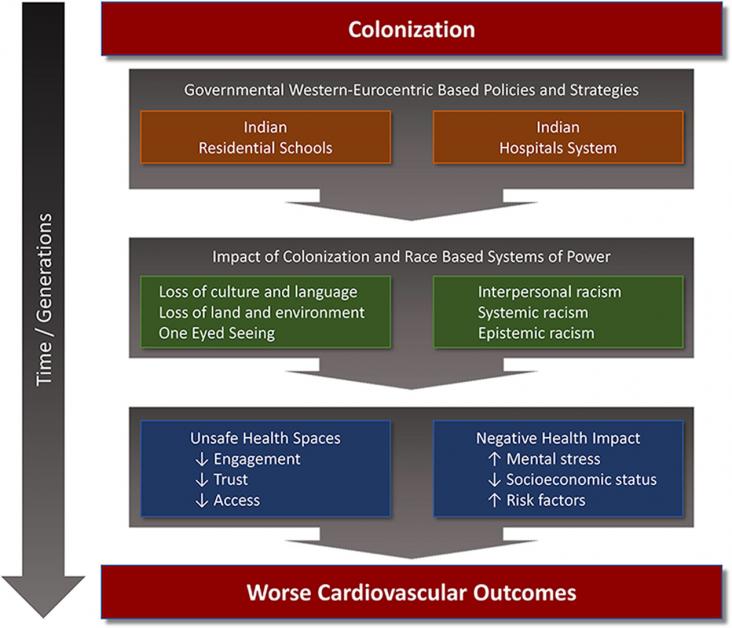
The International Day of the World’s Indigenous People is observed on 9 August every year since the decision by the United Nations General Assembly on 23 December 1994. The date marks the first meeting, in 1982, of the UN Working Group on Indigenous Populations.
This year’s theme is: Indigenous Youth as Agents of Change for Self-determination and relates to 3 themes:
- Climate Action and the Green Transition
- Mobilizing for Justice
- Intergenerational connections
Current Developments in Nutrition, Volume 7, June 2023
The Lancet Planetary Health, Volume 7, June 2023
Australian and New Zealand Journal of Public Health, Volume 47, June 2023
The Lancet Regional Health - Western Pacific, Volume 35, June 2023
Lancet Regional Health - Americas, Volume 21, May 2023
Current Developments in Nutrition, Volume 7, May 2023
Current Developments in Nutrition, Volume 7, May 2023
The Lancet Regional Health - Western Pacific, Volume 34, May 2023
Current Developments in Nutrition, Volume 7, April 2023
Background: An essential dietary strategy to address the rapidly increasing risk of the double burden of malnutrition among indigenous populations around the world is to improve nutritional and food diversity utilizing varieties of traditional plant-based foods. Objectives: The objective of this research was to identify wild edible plants (WEPs) frequently consumed by the Semai and analyze their proximate and mineral composition to improve the adequacy of the local population's nutritional intake.
Current Developments in Nutrition, Volume 7, March 2023
Lancet Regional Health - Americas, Volume 18, February 2023
Australian and New Zealand Journal of Public Health, Volume 47, February 2023
Lancet Regional Health - Americas, Volume 18, February 2023
Heart Lung and Circulation, Volume 32, February 2023
The Lancet Regional Health - Western Pacific, Volume 28, November 2022
The Lancet Regional Health - Western Pacific, Volume 28, November 2022
The Lancet Regional Health - Western Pacific, Volume 28, November 2022
Current Developments in Nutrition, Volume 6, September 2022
The Lancet Regional Health - Western Pacific, Volume 26, September 2022
Current Developments in Nutrition, Volume 6, 1 August 2022
The Lancet Global Health, Volume 10, August 2022
Current Developments in Nutrition, Volume 6, 1 July 2022
Current Developments in Nutrition, Volume 6, 1 July 2022
The Lancet Planetary Health, Volume 6, July 2022
Current Developments in Nutrition, Volume 6, June 2022
Current Developments in Nutrition, Volume 6, 1 May 2022
Current Developments in Nutrition, Volume 6, 1 April 2022
The Lancet Regional Health - Americas, Volume , 2022
EClinicalMedicine, Volume 35, May 2021
Current Developments in Nutrition, Volume 5, 1 April 2021
Current Developments in Nutrition, Volume 5, 1 January 2021
The Lancet Regional Health - Western Pacific, Volume 35, June 2023
The Lancet Regional Health - Western Pacific, Volume 28, November 2022
The Lancet Regional Health - Western Pacific, Volume 28, November 2022
The Lancet Infectious Diseases, Volume , 2023
Collegian, Volume , 2023
Imperiled: The Encyclopedia of Conservation, 2022, Pages 216-221
Energy Democracies for Sustainable Futures, 2022, Pages 215-224
Resilient and Sustainable Cities: Research, Policy and Practice, 2022, Pages 519-535
Multi-Hazard Vulnerability and Resilience Building: Cross Cutting Issues, 2023, Pages 127-143
Multi-Hazard Vulnerability and Resilience Building: Cross Cutting Issues, 2023, Pages 347-361
Sustainable Agriculture and the Environment, 2023, Pages 275-294
Conservation of Marine Birds, 2022, Pages 321-344


